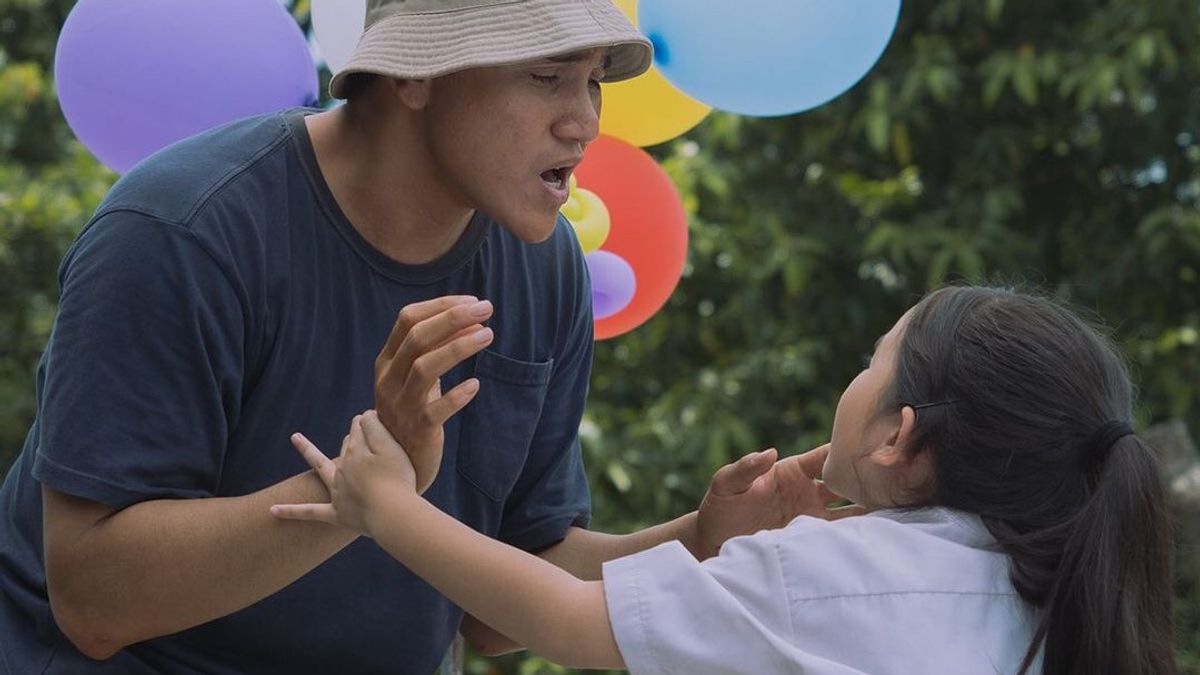JAKARTA - Child psychologist at Pondok Indah Hospital Bintaro Jaya, Jane Cindy Linardi, M.Psi, Psi became one of the 3.5 million viewers of the film Miracle Cell No.7. she praised Vino G Bastian's acting which touched the audience.
Even children's audience can feel afraid of losing their father figure after watching. Jane hopes that the film can help the public to care more about individuals with intellectual disabilities.
"Incidentally, I've watched the film, it's really good in describing the close relationship between the father and his child. In addition, Vino G. Bastian (Dodo players) can deliver Dodo's character as an individual with very good intellectual disabilities. This can also help ordinary people to be more aware of individual conditions with intellectual disabilities," he said when contacted Tuesday, September 20.
According to Jane Cindy Linardi, there are 4 things that children can learn when watching this film. Here's the explanation.
1. Learn Empathy Many viral videos circulating on social media are proof. Children who cry are reasonable. "This means that they can 'empare' with the characters in the film and feel sadness too. "It can also be later parents who invite their children to watch, ask their children what they feel after watching the film, later they can be dug deeper," he said.
"Films generally involve emotions from each character. In terms of storytelling, the audience is brought in to get to know the characters first, so that the audience builds a 'empath' against the characters, and also feels the emotions of these characters," he explained.
With the merger of musical elements, the atmosphere of the audience is easy to dissolve. "The music is also chosen that is appropriate and usually the purpose of the music is to build emotions that are being shown in film scenes. For children who cry and hug their parents after watching, it means they have good emotional sensitivity," he explained.
2. Accepting Reality According to Jane, it can also be seen how children (Kartika), play a role as 'parents' for their parents who have special conditions. This actually happens a lot in the real world, children take care of their parents because of their parents' conditions that are not possible so that they can make their children moved.
"And in this film it is very good to describe the concept of 'child parenting' in Kartika's scene of preparing provisions, towels, and changing clothes for his father to work, then reminding his father to eat, and when his father works selling balloons, his son delivers his balloons and asks the buyer for a fair fee," he explained.
3. Reject Violence Like other films, Jane asks parents who invite their children to watch movies to the cinema to provide assistance. Responding to scenes that children cannot understand, for example, scenes of violence.
"In Miracle Cell No 7, for example, parents are expected to educate their children, especially in the scenes of beating Dodo characters. Then the concept of'murder' and 'rape' which the police accuse of to Dodo figures, parents can explain according to the age of the child. For children aged 7 years and under: explain as much as possible. For example: murder can be explained by 'for sure Dodo pushed his client's child into the pool, so the child drowned and died," he suggested.
4. Sexual Education So how do you explain the concept of rape? "Children can be explained that 'Dodo characters hold private body parts and the genitals of their clients." It is hoped that children at that age have also received sex education so they already understand the concept of 'bad touch' which is intended. In children aged 8 years and over, who already understand the abstract concept, can be explained in more detail," he continued.
The English, Chinese, Japanese, Arabic, and French versions are automatically generated by the AI. So there may still be inaccuracies in translating, please always see Indonesian as our main language. (system supported by DigitalSiber.id)













